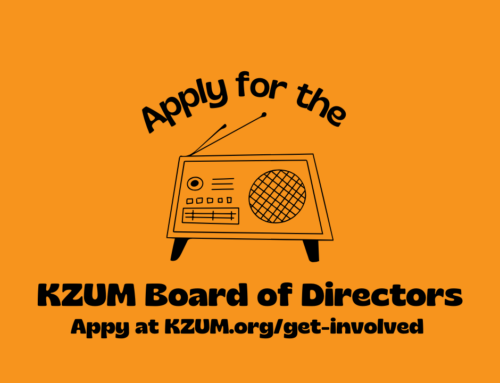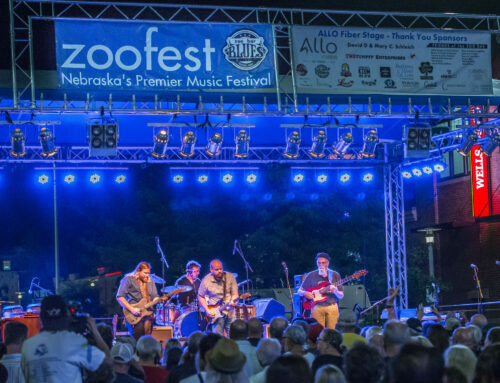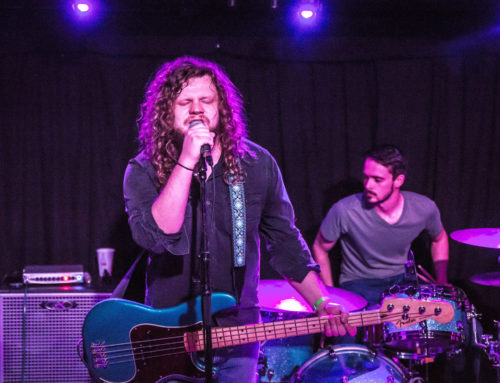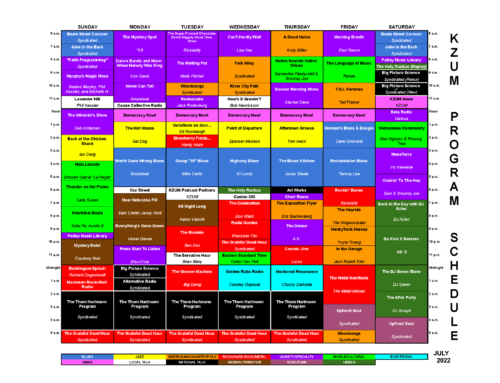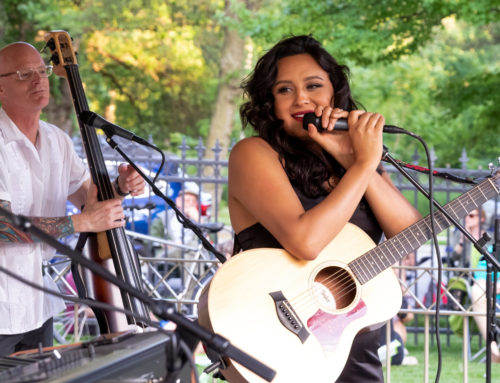By Tom Ineck
Feb. 23, 2018
For insight into music history, the creative process, the rigors of recording and touring and the ultimate joy of being a performing artist, there is nothing more revealing than a live, public interview by a qualified inquisitor. Such was the case with feature interviews of veteran musicians Richard Thompson, 68, and John Oates, 69, at the 2018 Folk Alliance International conference in Kansas City.
Stephen Winick, a folklorist, teacher, writer and editor at the Library of Congress’s American Folklife Center since 2005, was an excellent choice to query Thompson on his 50-year career as a legendary guitarist, songwriter and innovator in traditional and contemporary folk music. In his typical droll manner, Thompson initially expressed trepidation about the interview process, hoping aloud that it wouldn’t involve “waterboarding or cavity searching.”
But the freewheeling and informal exchange proved painless for both artist and interviewer. The conversation ranged from Thompson’s early days as co-founder of the groundbreaking English folk-rock group Fairport Convention—formed when he was just 18—to his work with wife Linda in the 1970s and his continuing solo career, which began in the early 1980s.
With the emergence in the 1960s of such varied and diverse British groups as The Who, The Soft Machine, the Incredible String Band, Pink Floyd and others, “the floodgates were opened,” Thompson said. With some 300 clubs in theUK offering live music, “it was a fantastic place to be.” Through access to private demos by North American songwriters Joni Mitchell and The Band—most notably “The Basement Tapes” with Bob Dylan—Thompson said he began to appreciate “the power and the quality of the lyrics.” Dylan, he said, “was changing the rules. Obfuscation was de rigueur.” Intelligent songwriting was replacing what he described as the “simplistic, stupid” tunes of an earlier pop era. For frustrated young British songsmiths Thompson, Sandy Denny and Nick Drake, songwriting became cathartic.
Thompson said his guitar-playing technique also evolved with the times. By using alternate tunings and bending the strings and the neck, he used the electric six-stringed instrument to create a sound “closer to the human voice” or to a bagpipe, especially when interpreting or extending Scottish folk traditions on songs like “A Sailor’s Life, “Matty Groves” and “Meet on the Ledge.”
Regarding his practice in recent decades of alternating solo acoustic performances and recordings with those of an electric band, Thompson said he likes the intimate solo concert because it’s “sort of like being in church. It’s heart to heart.”
John Oates similarly shed light on a long career split between the iconic rock and soul group Hall & Oates (with Darryl Hall) and his experience recording and touring with a band of his own. He said he prefers playing the smaller venues where the relationship between artist and audience is more intimate and listeners don’t have to watch a video screen to see the band. Of course, the occasional arena tours with Hall & Oates make it financially feasible for him to thoroughly enjoy his solo ventures. His seventh solo recording, the bluesy Arkansas, was released Feb. 2.
Modest and self-deprecating, Oates said he has a “split personality” when it comes to switching hats between the popular duo and his more personal solo work. But he dispelled the notion that Hall & Oates were just casual hit-makers, describing their style as a “street-corner doo-wop” that blended Hall’s higher voice with Oates’ lower one in octaves. After so many years together, they no longer have to rehearse before a tour. “We know how to play ‘Maneater’,” he joked.
Oates wrapped up the interview with a solo rendition of Mississippi John Hurt’s “Creole Belle,” exhibiting a fluent finger-picking technique. He proudly told the story of recently acquiring a guitar once owned by Hurt. He later signed copies of his new memoir “Change of Seasons.”
Tom Ineck is a native and longtime resident of Lincoln, Neb., who has written about music for more than 30 years. He has hosted the KZUM jazz program “NightTown” since 1993 and NET Radio’s “Jazz Currents” since 2012.

